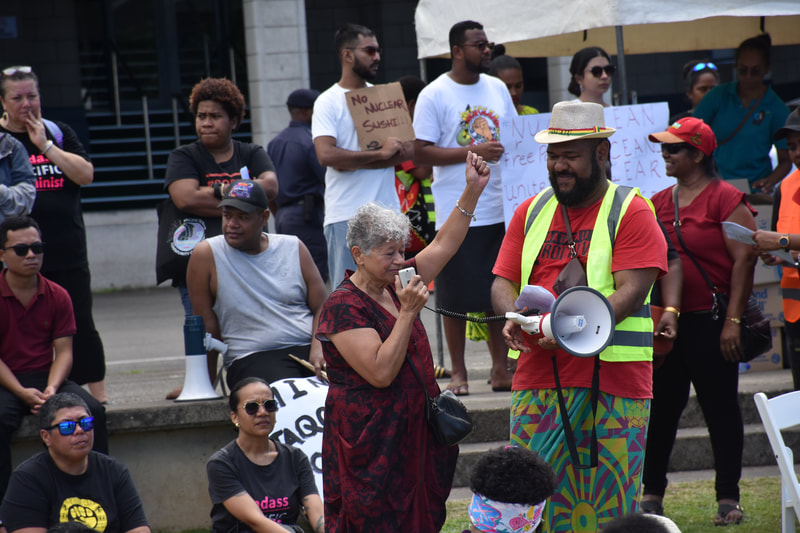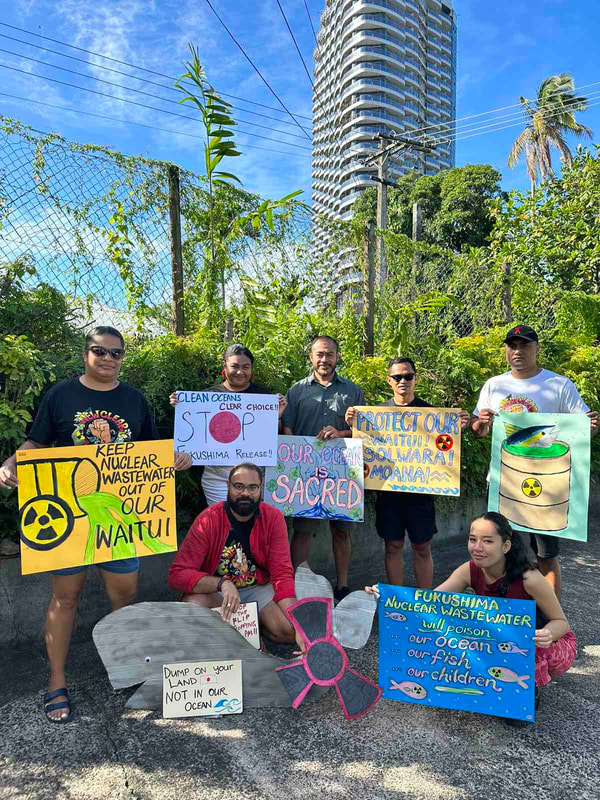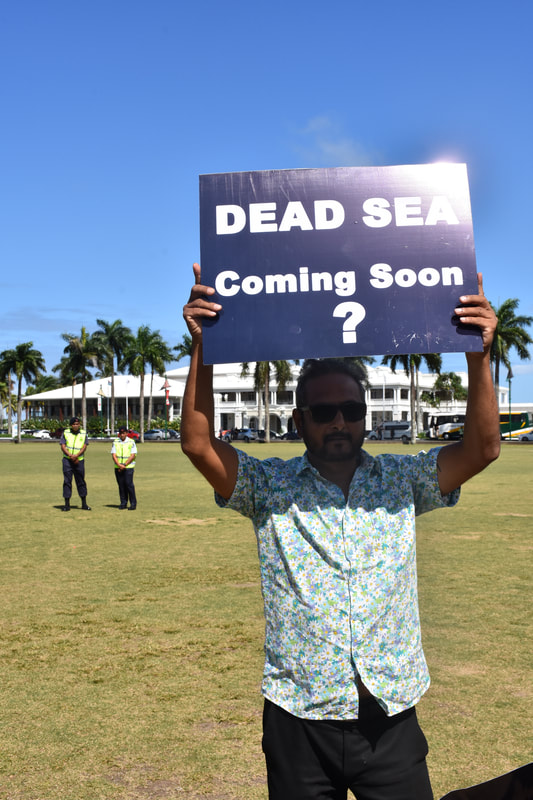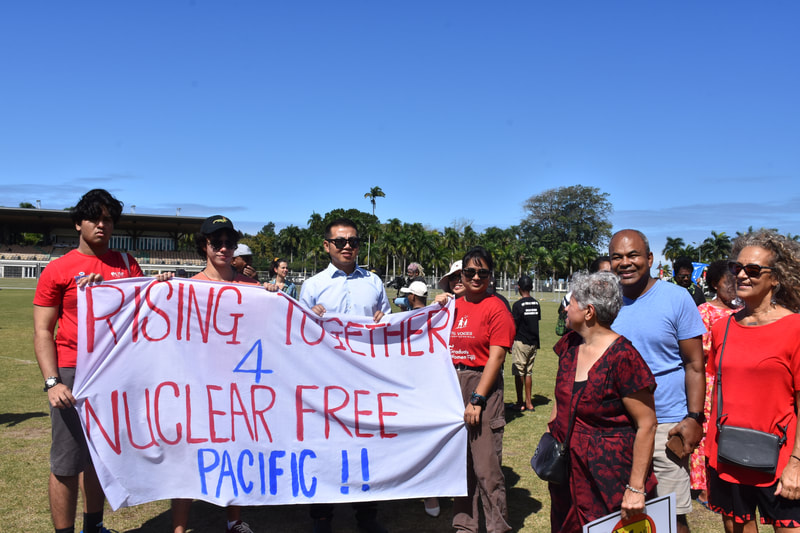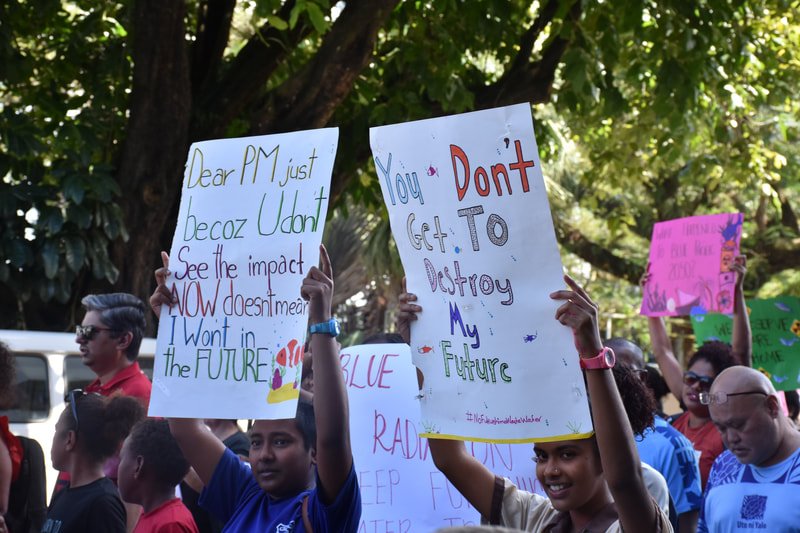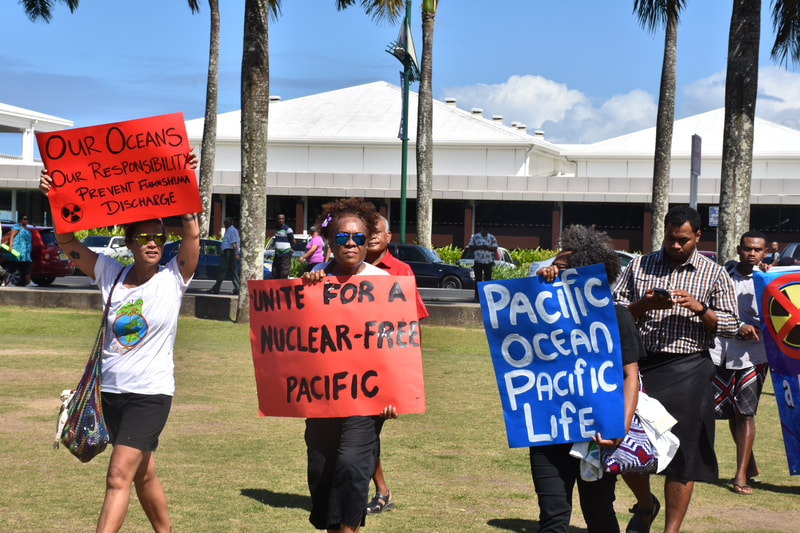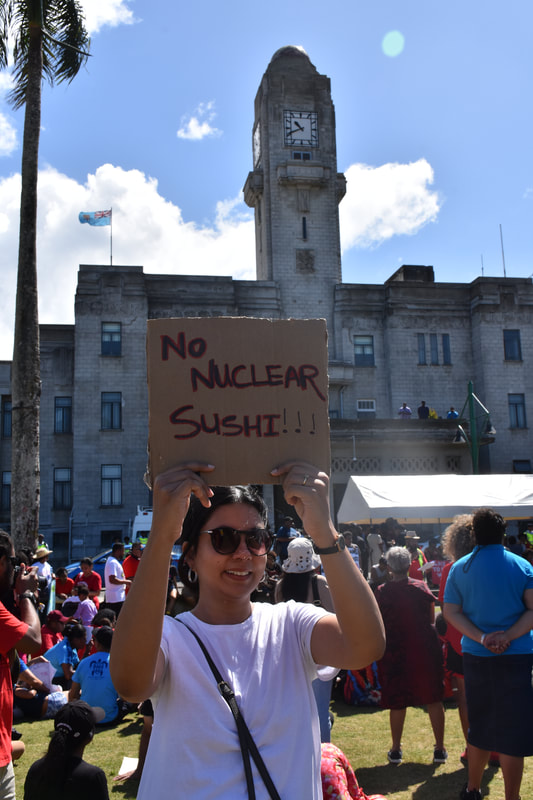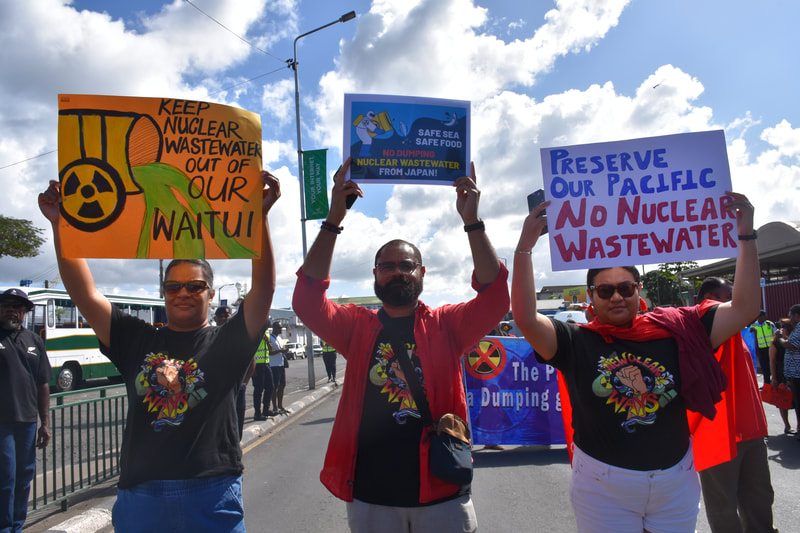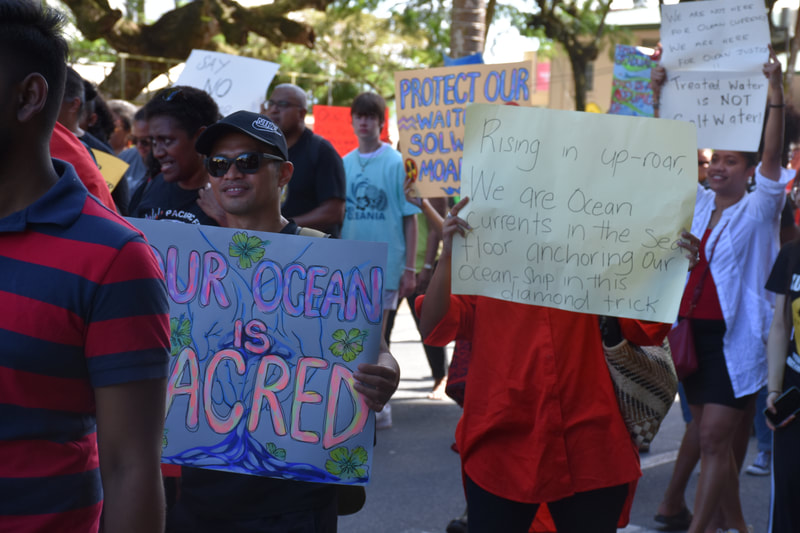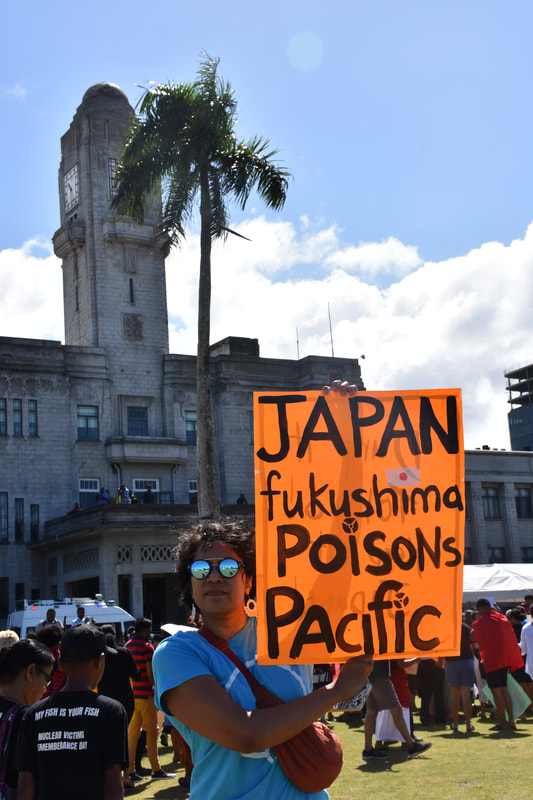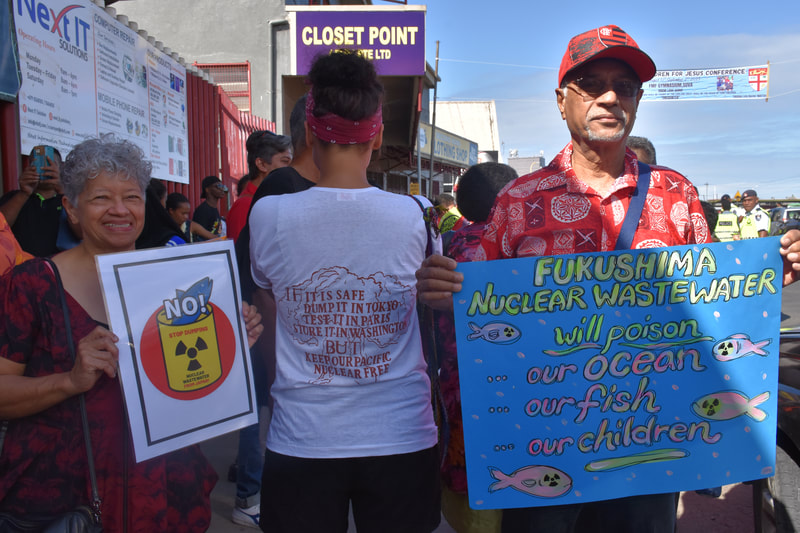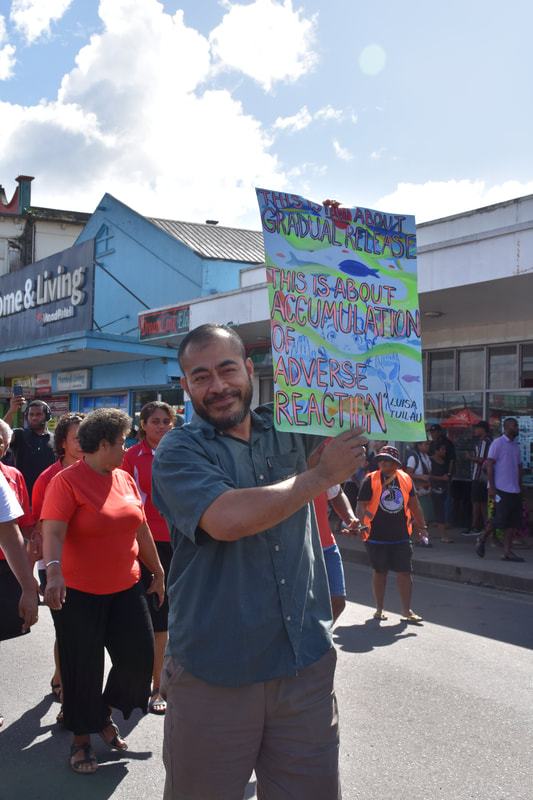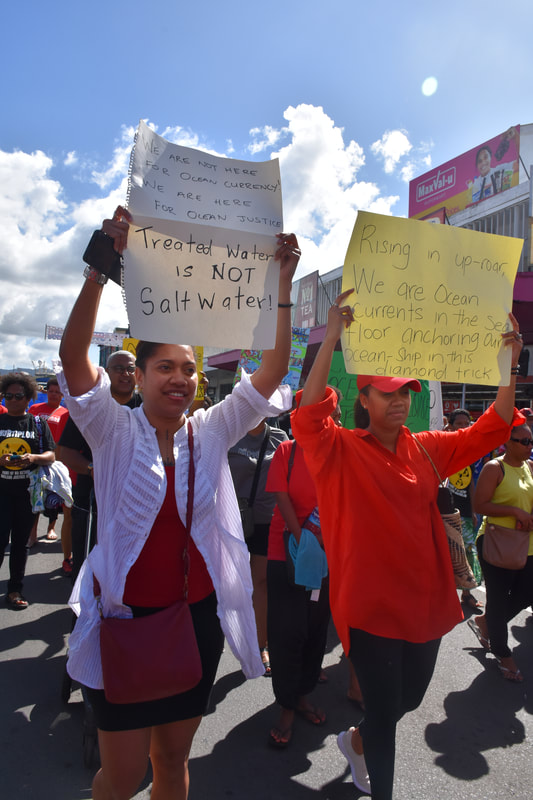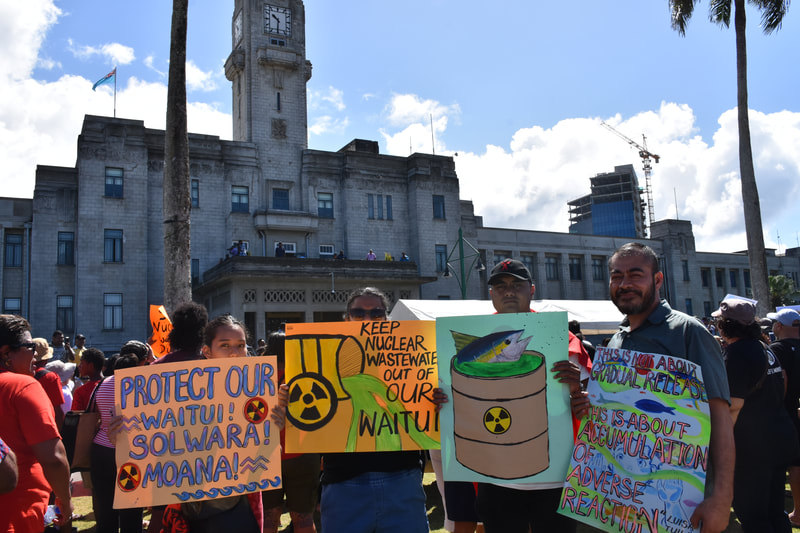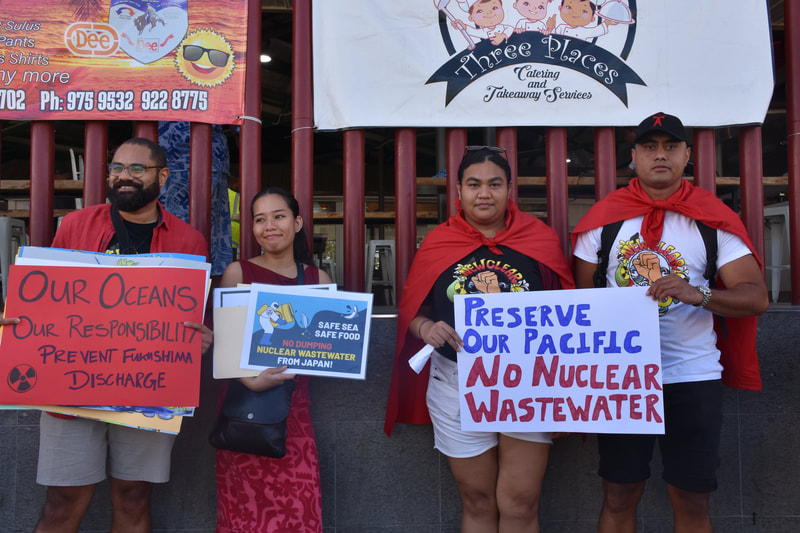Pacific groups call out Japan to stop nuclear pollution.
By Brittany Nawaqatabu
USP Journalism Student
The anti-Fukushima nuclear wastewater protest in Suva last week was a momentous
event. It marked the first time in 16 years that such a massive march was permitted
in Fiji. Over 400 people gathered in the streets to vehemently oppose Japans
decision to release Fukushima nuclear wastewater into the Pacific Ocean.
In solidarity with simultaneous protests across Asia, the United States, and the
Pacific region, many demonstrators condemned Japan's actions as a grave offense
against humanity and the environment. This solidarity march, organized by DIVA for
Equality Fiji, received broad support from a coalition of civil society organizations
throughout the Pacific and the general public in Suva.
Japan initiated the release of Fukushima Daiichi nuclear wastewater on August 24th,
triggering a wave of concern among Pacific islanders who feared for the future of our
ocean and future generations.
Pacific Conference of Churches General Secretary Rev James Bhagwan said the
march was an act of democracy in the country.
“We are marching through the streets of Suva today in celebration of democracy to
protect our oceans, our future generations, the future of life in the oceans and in
solidarity with the people around the world to STOP Fukushima Nuclear Waste being
dumped in the Pacific Ocean”, stated Rev Bhagwan.
DIVA for Equality Founder, Noelene Nabulivou expressed that she was encouraged
to hear at the MSG meeting that leaders should listen carefully to the will of the
people.
“The will of the people is very clear. This is one of the issues that I think that
everyone I’ve spoken to in the past few weeks is concerned about”.
Founder and current board chair of Development Alternatives with Women for a New
Era (DAWN) Dr. Claire Slatter joined in on the march. Dr.Slatter is one of the initial
anti-nuclear activists from the University of the South Pacific. An activist for over 40
years, Dr.Slater said that there’s solidarity in the rally for our oceans health.
“If you’re a country that agrees to use nuclear power, take care of your waste on
your shores! It’s the whole principle of polluter-pay!”
“It is absolutely unquestionable what Japan is doing and how dare they get our
leaders to agree to them doing it. Shame on those leaders that actually said yes or
agreed that it is safe when we know its not safe.”
“Japan is one of the biggest financial contributors towards the IAEA. Japan, you take
care of the work on your shores, there are safer ways to do it!.”
Dr. Slatter further argued that Japan should heed the safer recommendations
provided by the Pacific Island Forms Panel of experts, which suggested
concentrating nuclear waste in concrete and using it in applications with no human
contact.
Keep it out of our oceans!
Pacific Islands Climate Action Network (PICAN) coordinator, Lavetalagi Seru noted
that Pacific leaders need to have good judgment as this is an issue that does not
only concern the wellbeing of people today but concerns the future generations.
“Our concern is that the alternative report from the independent experts
commissioned by the Pacific Island Forum has made it clear that the data provided is
inconsistent and far from safe”
“The people are really concerned because this issue is something that is dealing
with their livelihoods. This is not a decision for any country to unilaterally make
because the Pacific Ocean surrounds the whole of the Pacific and we need to take a
stronger and regional position against Japan's plan”
Youngsolwara Pacific’s poet and activist, Luisa Tuilau said, “we are not nukes for
peace scientists, but the Pacific will not be radio-silenced on this.”
By Brittany Nawaqatabu
USP Journalism Student
The anti-Fukushima nuclear wastewater protest in Suva last week was a momentous
event. It marked the first time in 16 years that such a massive march was permitted
in Fiji. Over 400 people gathered in the streets to vehemently oppose Japans
decision to release Fukushima nuclear wastewater into the Pacific Ocean.
In solidarity with simultaneous protests across Asia, the United States, and the
Pacific region, many demonstrators condemned Japan's actions as a grave offense
against humanity and the environment. This solidarity march, organized by DIVA for
Equality Fiji, received broad support from a coalition of civil society organizations
throughout the Pacific and the general public in Suva.
Japan initiated the release of Fukushima Daiichi nuclear wastewater on August 24th,
triggering a wave of concern among Pacific islanders who feared for the future of our
ocean and future generations.
Pacific Conference of Churches General Secretary Rev James Bhagwan said the
march was an act of democracy in the country.
“We are marching through the streets of Suva today in celebration of democracy to
protect our oceans, our future generations, the future of life in the oceans and in
solidarity with the people around the world to STOP Fukushima Nuclear Waste being
dumped in the Pacific Ocean”, stated Rev Bhagwan.
DIVA for Equality Founder, Noelene Nabulivou expressed that she was encouraged
to hear at the MSG meeting that leaders should listen carefully to the will of the
people.
“The will of the people is very clear. This is one of the issues that I think that
everyone I’ve spoken to in the past few weeks is concerned about”.
Founder and current board chair of Development Alternatives with Women for a New
Era (DAWN) Dr. Claire Slatter joined in on the march. Dr.Slatter is one of the initial
anti-nuclear activists from the University of the South Pacific. An activist for over 40
years, Dr.Slater said that there’s solidarity in the rally for our oceans health.
“If you’re a country that agrees to use nuclear power, take care of your waste on
your shores! It’s the whole principle of polluter-pay!”
“It is absolutely unquestionable what Japan is doing and how dare they get our
leaders to agree to them doing it. Shame on those leaders that actually said yes or
agreed that it is safe when we know its not safe.”
“Japan is one of the biggest financial contributors towards the IAEA. Japan, you take
care of the work on your shores, there are safer ways to do it!.”
Dr. Slatter further argued that Japan should heed the safer recommendations
provided by the Pacific Island Forms Panel of experts, which suggested
concentrating nuclear waste in concrete and using it in applications with no human
contact.
Keep it out of our oceans!
Pacific Islands Climate Action Network (PICAN) coordinator, Lavetalagi Seru noted
that Pacific leaders need to have good judgment as this is an issue that does not
only concern the wellbeing of people today but concerns the future generations.
“Our concern is that the alternative report from the independent experts
commissioned by the Pacific Island Forum has made it clear that the data provided is
inconsistent and far from safe”
“The people are really concerned because this issue is something that is dealing
with their livelihoods. This is not a decision for any country to unilaterally make
because the Pacific Ocean surrounds the whole of the Pacific and we need to take a
stronger and regional position against Japan's plan”
Youngsolwara Pacific’s poet and activist, Luisa Tuilau said, “we are not nukes for
peace scientists, but the Pacific will not be radio-silenced on this.”
